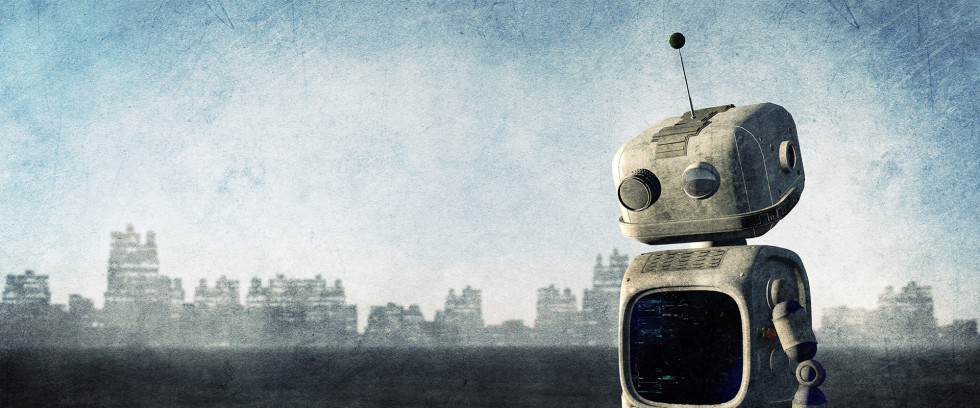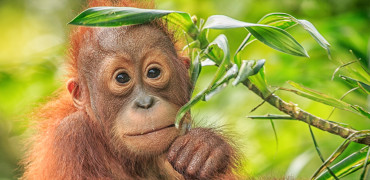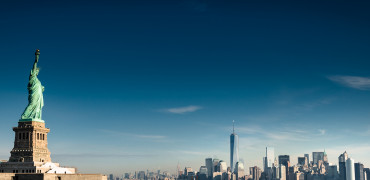On the Hub we have spoken quite a bit about the references to climate change in TV, film and literature, but according to this article on The Guardian, “climate fiction” is a thing. In fact it’s actually a new genre that I think we’re going to be hearing a lot more about!
What is Cli-Fi?
The term Cli-Fi was apparently coined in 2007 and although questionably a sub-genre of Sci-Fi, throughout the past 10 years the term has become more popular - although it doesn’t appear to have become a mainstream genre… yet.
Cli-Fi as the term might suggest is climate fiction – think The Day After Tomorrow (2004) and 2012 (2011) which focus on storylines based around a climate disaster like global cooling.
But what are the differences between Sci-Fi and Cli-Fi?
The difference is that unlike science fiction, climate fiction is a warning of what has, will or could become of us as our climate changes. Of course some of the fiction is arguably farfetched, but the reality is that unlike an alien invasion or an AI rebellion, climate change is happening and these life-changing effects are highly likely to happen too.
Now of course films and books about natural disasters have been around for decades – here I’m thinking of 90’s gems like Dante’s Peak (1997) and Twister (1996). But climate fiction focuses on a disaster caused as a result of humanity’s effect on the planet. For example, we burn fossil fuels that cause hot gases to be captured in the atmosphere, thus warming the planet, melting the polar ice caps and making sea levels rise… hello Waterworld (1995)!
Unlike an alien invasion or an AI rebellion, climate change is happening and these life-changing effects are highly likely to happen too.
What Cli-Fi genre books do I recommend?
Evidently more popular in action films, Cli-Fi books tend to ignore the action and really narrow in on the serious effects of human caused climate change. Some of my favourites are:
-
The Handmaid’s Tale (1985) by Margaret Atwood
Arguably the most famous novel touching on society’s need to change due to the effects of pollution and climate change, The Handmaid’s Tale focuses on woman’s struggle to conceive in a dystopian society where infertility is high and woman’s rights are non-existent.
-
The Bone Clocks (2015) by David Mitchell
Climate change has depleted earth’s resources and humanity is struggling to survive… need I scare you more?
-
The Carbon Diaries 2015 (2008) by Saci Lloyd
Probably the novel that resonates most with the state of our current world, this book focuses on a teenage protagonist who struggles as the UK imposes carbon rationing in the wake of life-changing climate change related disasters.

What Cli-Fi genre films do I recommend?
-
Waterworld (1995)
As I mentioned above, Waterworld depicts an earth which is almost completely covered with water due to the melting ice caps and the rise in sea levels. Therefore humans have to live at sea, harassed by a one-eyed Dennis Hopper and his pirates, whilst searching for the mystical “dry land”.
-
Beasts of the Southern Wild (2012)
Another film that focuses on rising sea levels and extreme weather caused by climate change, Beasts of the Southern Wild is probably one of the best films I have ever seen. It is about a young girl who lives in a Louisiana (the notable location of Hurricane Katrina and more recently Hurricane Harvey) in a community called The Bathtub. Aside from the seriousness of the film, with the melting of the polar ice caps prehistoric beasts have been released (or so the little girl believes) leading to a Cli-Fi film mixed with an aspect of childhood fantasy.
-
Children of Men (2006)
“One of the 21st Century’s most acclaimed films” as reported on the BBC website, Children of Men depicts a dystopian future where men and woman have become infertile. The theme of the storyline echoes the similar theme from the Handmaid’s Tale, and subtle shots within the film highlight that climate change has played a part in the cause.
What can we learn from Cli-Fi?
For me the main difference between Cli-Fi and Sci-Fi is that after reading or watching Cli-Fi I see the warnings and I actually feel worried about the future. But the underlining message in all these storylines is that we still have time to avoid these things happening if we adapt and change. After all Cli-Fi could even serve as Cau-Fi which I am coining as cautionary fiction!
Ellina Webb is a Senior Marketing Executive at Mitsubishi Electric
If you have any questions about this article, you can contact us via email. Or if you would like to tweet us, please follow our MEUK_LES twitter page.
We upload new articles every week so remember to check back regularly.
You can also sign up for our monthly newsletter below.


